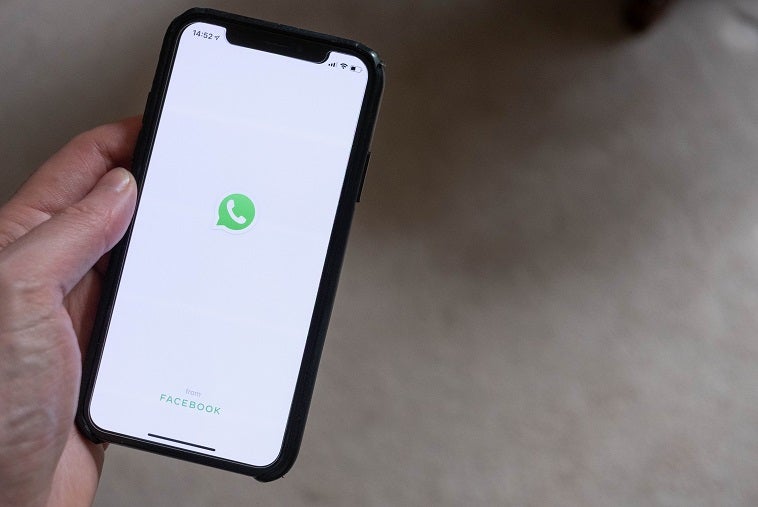
For Abhijit Bose, head of WhatsApp India, there is a remarkable business opportunity in bringing prosperity to the aspiring poor through financial inclusion. Mohamed Dabo reports on a strategy aimed at quickly gaining 200 million new users among India’s underserved
A successful entrepreneur himself, Abhijit Bose sees no conflict between promoting financial inclusion and meeting core business objectives.

Access deeper industry intelligence
Experience unmatched clarity with a single platform that combines unique data, AI, and human expertise.
“WhatsApp can be a major partner for financial inclusion and economic growth in India,” he says. “It’s not only how so many families stay in touch, but increasingly it’s how businesses are engaging with their customers. WhatsApp can positively impact the lives of hundreds of millions of Indians, allowing them to actively engage and benefit from the new digital economy.”
Bose joined WhatsApp in 2018 from Ezetap, where he was co-founder and CEO. A graduate of Harvard Business School and Cornell University, Bose was tasked with building WhatsApp’s first full country team outside California.
Under his management, WhatsApp has just launched pilot programmes for digital lending, insurance and pension solutions in India. The move pits the Facebook-owned company against existing players in India that include Alibaba, Softbank-backed Paytm and Walmart-backed Phonepe – not to mention units of Amazon and Google.
Local partnerships
WhatsApp plans to launch the news services by partnering with local banks and financial services companies.

US Tariffs are shifting - will you react or anticipate?
Don’t let policy changes catch you off guard. Stay proactive with real-time data and expert analysis.
By GlobalDataBose says WhatsApp has already conducted service delivery pilots with lenders such as ICICI Bank, HDFC Bank and Kotak Mahindra Bank.
Over the next 18 months, the Californiabased company plans to run multiple pilots across India in the areas of digital lending, micropensions and insurance.
WhatsApp currently has some 400 million users in India, and Bose says the company expects to bring about 200 million new users to Unified Payments Interface (UPI) payments as it takes on its competitors. The US company has been awaiting regulatory approval to officially launch its UPI payments solution in India.
Local banking apps
WhatsApp will not launch the solutions as its own, but as a solution of its partner banks and financial service companies.
“WhatsApp has been working for over the last one year-plus with our banking partners to see how we can supplement their presence to accelerate our current pace of access across segments and geographies,” explains Bose. “The question we asked was: how can we use WhatsApp’s reach, our security through endto-end encryption as well as our simple user experience to complement their banking app?”
Early examples from ICICI, HDFC and Kotak banks have been very well received, with ICICI crossing 100,000 users within months of being launched, and Kotak’s services having already reached more than 200,000 users.
“Now, with the initial proofs of concept in place, we now want to open up with more banks over this coming year to help simplify and expand banking services, especially to the rural and lower-income segments,” Bose adds.
India the testing ground
“Consumers will always decide what they want and initiate the service. We’ll take risks, but we’ll do it in a controlled pilot. Based on user acceptance, we will invest and scale the solutions that deliver results,” Bose says.
“India is the testing ground for these pilots, mostly based on UPI infrastructure, which will then be replicated in other countries. And once you prove it in India and template the solution here, it should be able to handle the complexities of any other market.”
Bose adds that WhatsApp is looking at payments in India at scale, where it can customise solutions for inclusive banking; micro, small and medium-sized enterprises (MSMEs); or to accelerate distribution of products that enable financial inclusion and security. These solutions, he says, can be leveraged by 12 million small businesses that are operating on WhatsApp, and also large enterprises and financial institutions that use WhatsApp Business.
The informal economy
WhatsApp will focus on financial inclusion, by offering financial services in the informal, unorganised economy.
Over the next two to three years, the fintech, along with its partner financial institutions, aims to provide low-wage workers access to three main products: insurance, microcredit and micropensions. Currently, these financial services are largely absent from the informal sector in India as a result of various issues with distribution, according to Bose.
“Even a small conversion of the demand will translate into significant infusion of savings into the financial system. Our ultimate goal is for every Indian to have access to an affordable micropension and insurance services from our partners,” he says.
Digitising MSMEs
WhatsApp also wants to help digitise MSMEs, which it believes will increase their access to credit – something that is currently lacking as most banks do not want to lend to this type of operation.
In India, MSMEs contribute nearly 8% of the country’s GDP, around 45% of the manufacturing output, and approximately 40% of the country’s exports. It would not be inaccurate to refer to them as the ‘backbone of the country’.







